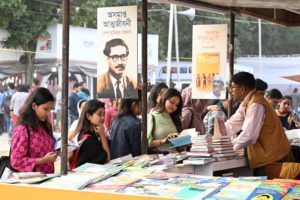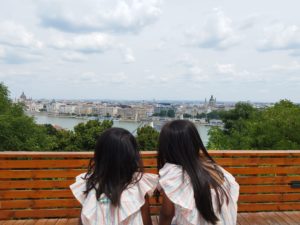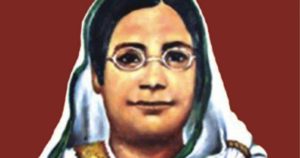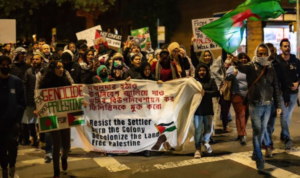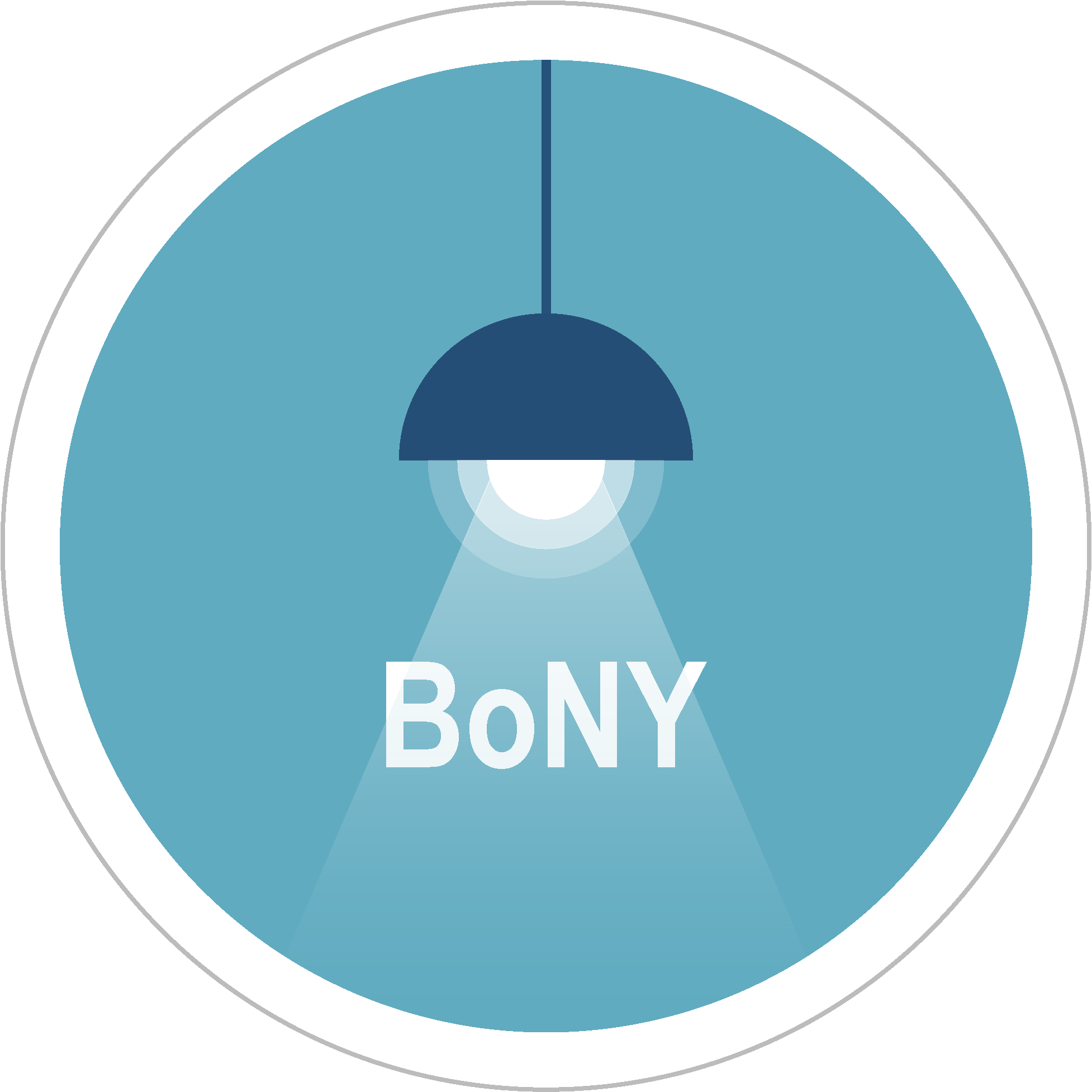Lal Morich Takes on Imperialism
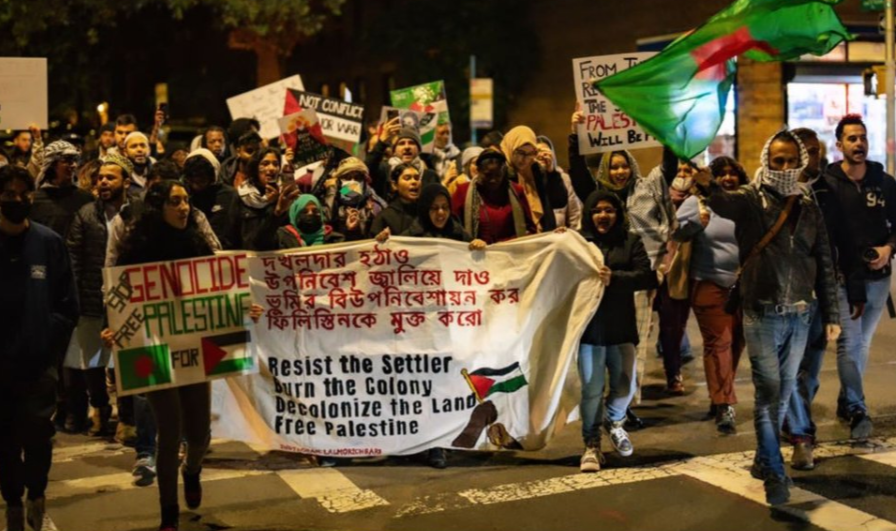
By Zara Kabir
South Asians are a vibrant part of New York City, leaving their mark in neighborhoods from Queens to the Bronx. In a city of 8 million, Bangladeshis alone number over 100,000. This is according to 2020 census data so actual numbers are likely higher.
In recent years, a younger generation of Bangladeshis have become more politically involved. Lal Morich seeks to bridge the gap in Bengali political education and organizing, for youth and older Bengalis alike.
Their platform is centered around creating a new political arena, one built for and by Bengalis. They reject collaboration with agents and organizations that further imperialism and neocolonialism, including politicians and Western-backed NGOs.
Studies have shown that NGOs can lead to overreliance on foreign aid organizations, challenging and undermining local government-provided services. Over time, this can leave local communities unable to support themselves. Lal Morich’s ethos instead focuses on building a coalition across cultural and class lines to achieve financial and political liberation from the state.
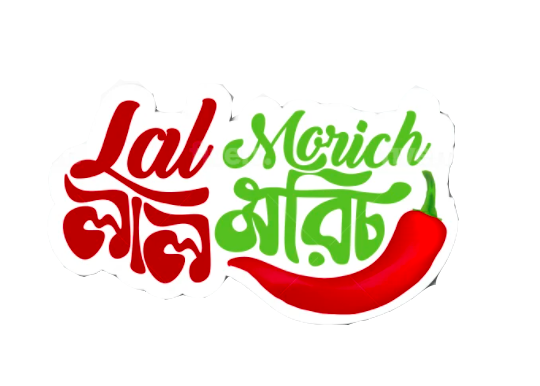
Can you explain the meaning behind your name?
Lal Morich means Red Pepper in Bangla. The inspiration of the name comes from the duality of how lal morich, red pepper, can be used. Added to Bengali or South Asian dishes and the red pepper adds a kick that brings us a delicious comfort. But rubbed in the eye, and the red pepper becomes a paralyzing weapon. We believe Lal Morich represents that duality.
What encouraged you to start Lal Morich?
We were inspired by our Filipino, Puerto Rican, Mexican, New Afrikan, and Palestinian diasporic comrades. Specifically, those who have been involved in militant, anti-imperialist organizing within their respective national liberation struggles and then connecting the diasporas’ local issues to the issues back home. These revolutionary diasporas are rejecting the NGO style of organizing, rejecting reformism, and pushing the urgent need for revolution through a scientific socialist perspective. It was with these observations that Lal Morich distinguished its role to build a genuine, militant anti-imperialist Bangladeshi organization that aims to organize the working class, lower middle class and street elements into revolutionary political life by connecting our struggle and liberation to the desh.
How would you describe your mission as an organization?
Lal Morich is a revolutionary mass organization that aims to support the new democratic revolutionary movements in East Bengal (Bangladesh) from the diaspora. We aim to EDUCATE, MOBILIZE, ORGANIZE the potential force of the Bangladeshi working class, middle class diaspora and the friends who are down to struggle against imperialism, semi feudalism and semi colonialism in Bangladesh from the unique position of being overseas.
We understand that the liberation of the host land we are residing in is significantly connected to the liberation of our desh, so we must grasp the significance of tying our struggle with the deepest sectors of the host country. For us to be liberated, we must build alliances with other anti-imperialist, anti-colonial forces and fight against the systems of patriarchy, fascism, narrow nationalism, fundamentalism, caste-based violence and communal violence. We must see the connection of the ruling oppressive states as the common denominator.
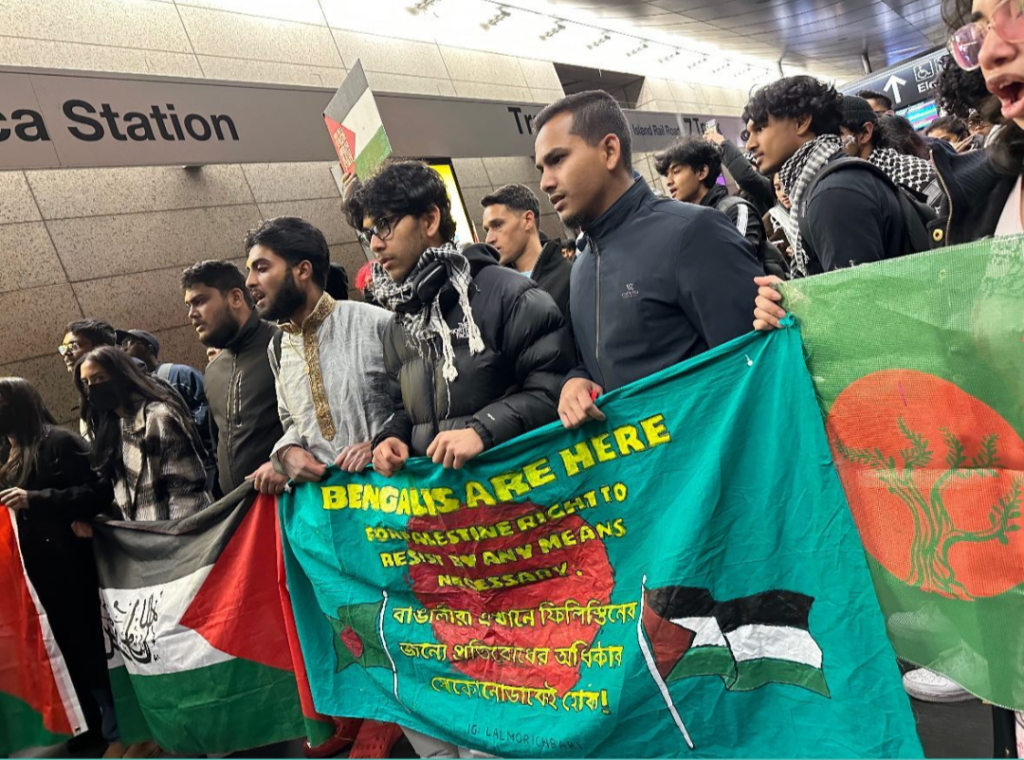
Why do you think it’s important for the Bengali diaspora to politically mobilize?
Fascism is like dirt piling on your floor; if you don’t sweep it regularly then it will only grow. This is the reality that Bangladeshis and many other oppressed people must face. The Bengali diaspora is forced to challenge the brutality of US imperialism and the growth of hindutva and Zionist ideological influence in our daily work and personal lives.
This is no easy task, and for us to be successful, we must emphasize the will of Bangladeshi people to mobilize, educate, and organize into a a self-reliant, working-class, conscious force that can solve its own internal issues without the meddling of NGOs, politicians, police, zionists, and imperialist agendas.
Bengalis in NYC have been hit hard in recent years because of the pandemic. Lal Morich started the LAL SHAKTI Health Initiative in response. Can you tell us a little more about that?
Lal Shakti was a summer program that served as a response to the failing capitalist healthcare system that puts money over people’s lives. We understand the pervasiveness of health issues in our community as bound to capitalist exploitation, and we wanted to create programs to address these health issues while connecting to the political reality of why they exist in the first place. We held self-defense classes for youth where we encouraged working out as groups to combat diseases that are genetically higher risk for us like diabetes and hypertension. We also recognized that Covid-19 had a significant financial impact, and so we incorporated Lal Mela (Red Fair) into Lal Shakti to allow aunties in the community to street vend throughout the day.
Recently, Lal Morich has been organizing ‘Bengalis for Palestine’ protests throughout the five boroughs. Why is organizing for Palestinians, who are Arab, important for LM?
Anti-Zionism is a founding principle of Lal Morich, it is one of the points of unity which defines the expectation of all Lal Morich members. This requires genuine anti-zionist practice, which includes no normalization of Zionism amongst our members. This point of unity came directly from an ally Palestinian organization, Within Our Lifetime, who has been leading militant protests and shutting down city blocks. They have been organizing for Palestinian liberation by any means necessary for more than five years, and have inspired aspects of Lal Morich’s work.
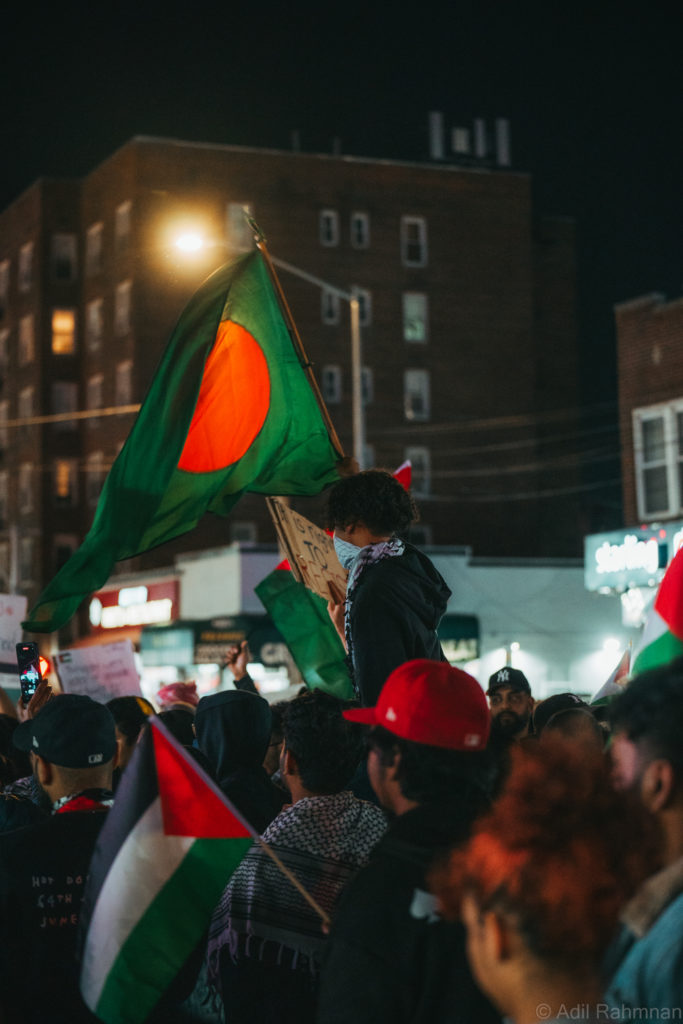
Have you had any surprises or memorable moments since you started organizing?
First, the militancy, passion, and commitment of the Bangladeshi youth in NYC. The Bangladeshi youth has shown up with a spark in them every week we’ve been out there.They’ve humbled us, and are pushing us to be more resilient.
Second, the many different Bengalis who have come together to show solidarity with Palestine: aunties and sisters, brothers and uncles, elders, non-Muslims alongside Muslims, LGBTQ+ community, all under the banner calling for a free Palestine by any means necessary. This right here is the gift given to us by the Palestinian Resistance fighters, and the heroic actions of the Al-Aqsa Flood.
While primarily based in New York City, does Lal Morich have plans to expand and potentially start new chapters in other cities with large Bengali populations in the future?
We have heard from Bangladeshis and South Asians in many parts of the world, from Canada and the UK to Italy and Australia, as well as Bengalis across many states such as Detroit, Philly, Boston, Austin and Los Angeles. Lal Morich has a national organizing member in Minnesota, and has always seen the Twin Cities as a potential place to build. This could mean a Lal Morich chapter, or perhaps it looks like Lal Morich supporting the development of a broader South Asian/Indo Caribbean alliance. It’s important to us that we keep our politics in command, and base our development on the concrete conditions. This also means that activating the militancy of the Bangladeshi diaspora into revolutionary political life takes priority over the quantifiable growth of Lal Morich itself.
We hope all who are reading this will also be interested in being involved with Lal Morich in some capacity, whether to explore starting your own Lal Morich chapter, or to talk about how to build your own organization and organize the diaspora in your locality.
To learn more information about Lal Morich, please visit https://www.lalmorich.org/
Zara Kabir is a writer at BoNY. She is passionate about history, politics, and the intersection at which they meet. She loves writing about social justice and hopes to raise the voices of those often forgotten. In her free time, she likes to practice violin and read theory.
Read More
The Legacy of Boi Mela
Every year in February, the month-long national book fair welcomes...
Read MoreMillennial Amma: How to Explain a Global Crisis As a Parent
Rumki Chowdhury shares tips for how to talk to children...
Read MoreBegum Rokeya’s Millennials
A tribute to a pioneering Bengali feminist writer, educator and...
Read More